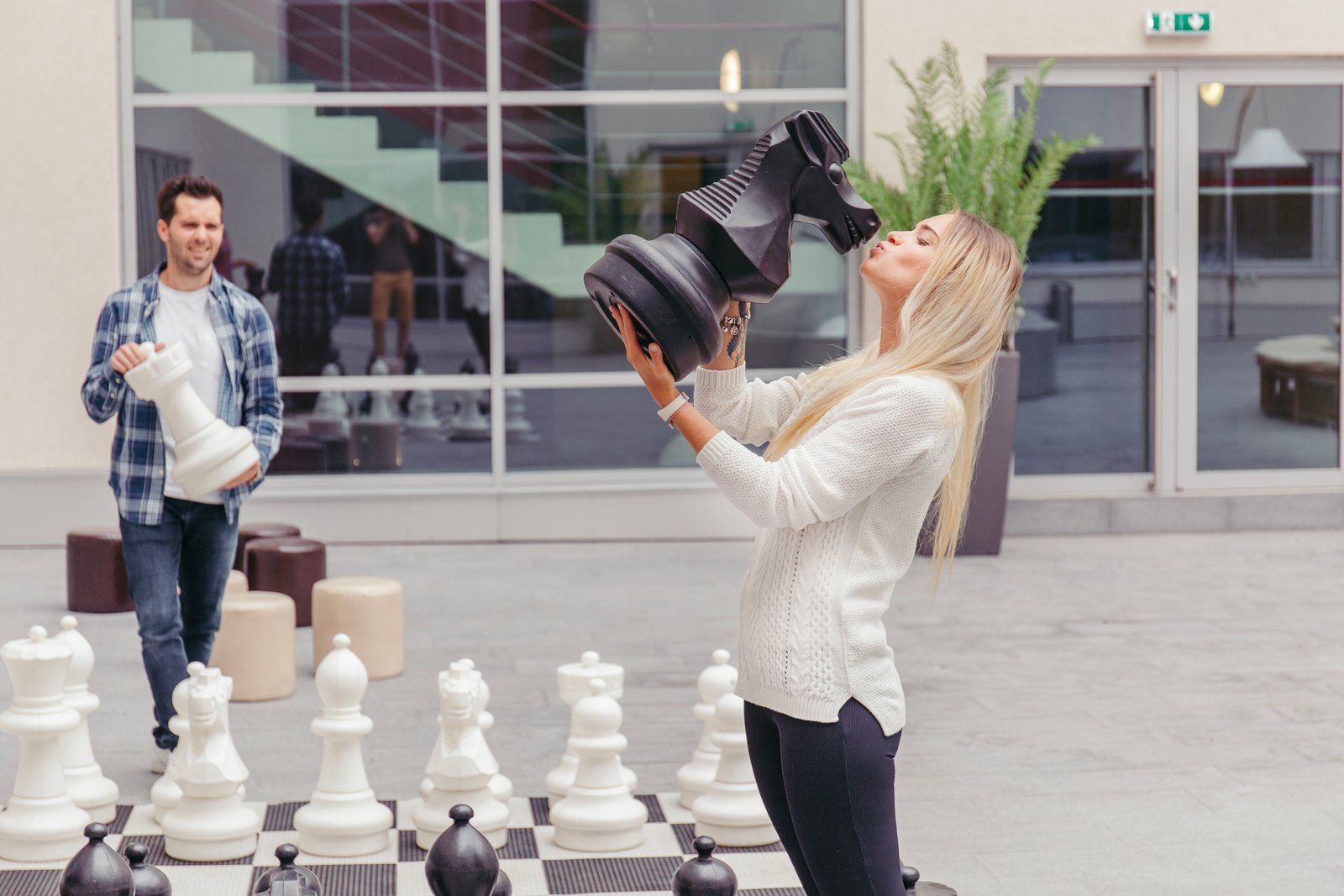
Chess is usually considered a bitter war of minds, where the players struggle to outwit each other in silence. But beneath the traps and flashy wins are some underlying things smart chess ideas that capture beauty instead of mere competition. They are those that come from a beginner's innovative move or a master's astute plan that illustrates chess is not always about triumphing. It may be about noticing patterns, building harmony on the board, and relishing the elegant flow of moves.
The magic of chess lies partly in the patterns that appear on a board. There are times when pieces dance together, forming shapes that look artistic and balanced. To watch a beautifully played combination or a flawless checkmate by the mere pawn and king is to gaze at a painting. These patterns are lovely even without a trophy at the end. It reminds us that chess is not merely a fight but an art form.
The silence that bespoke chess is one of the prettiest things about it. Contrary to loud sports, chess is played in silent concentration. But beneath this silence, there is a powerful story unfolding. Each step is a word, and every game is a story shared by two. Some games are tranquil and thoughtful, others swift and daring, but all of them express something else. Chess can be literary, where words aren't needed, the silence being the medium for deep and personal assertion.
Not all games are a win, and it’s okay. At other times, the greatest games are the ones you lose with honour. When you concede to your opponent's stroke of genius or when you learn a lesson from a mistake you made, then you grow as a player and as a person. Chess teaches us that beauty lies not in winning, but in the knowing, adjustment, and loving of the process. Losing is more about losing less and less about discovering new things and deeper strategies.
There are some players who don't necessarily memorize all the openings or study an enormous amount of theory, but play with passion and creativity. They do things that astonish, confuse, and at times, mesmerize other individuals. They are the ones who see the board as a canvas on which each piece has a role in a work of art. Instead of figuring out each line to an end, they trust to intuition and bring some creativity to the game. Chess is no longer a matter of reason and logic, but of expression, as great music.
Even the most basic of games among children or social acquaintances could have their share of beauty. That well-timed pawn promotion, that sneaky knight fork or that surprise proposal of a draw would be magical. You don't have to be a grandmaster to find the beauty of chess. Sitting down with someone and rebuilding the board in mutual good faith and interest is enough to make you pay attention to how beautiful even the most mundane moves are.
Offering a piece is probably the most aesthetically pleasing idea in chess. Giving something up for a greater purpose can yield stunning results. It takes nerve, giving up something valued, and when it leads to a lovely finish, the experience is remembered. Sacrifices are more than tactical devices—more even than mere strategies. They are tools of emotion, expressions of faith, vision, and beauty. They indicate that chess is as much a game of the heart as of the intellect.
Time is everything during competition. Outside of the competition area, however, time goes at a glacial pace. When two participants slow down, take careful consideration, and relish each step, something special happens. The focus is no longer on quickness but on understanding. Thoughtful errors are pardoned, ideas are unearthed, and the game is an experience and not a race. In such games, the attractiveness does not lie in the urgency of the clock, but in the freedom of the mind.
There is something beautifully introspective about solo chess play. Setting up a board, trying new ideas, working through problems, or rehashing old games means you can enjoy the beauty of chess. This time alone is most often a space where people come to love the game. With no stress to prove anything, you can play around, learn, and marvel at how 64 squares hold an infinite number of possibilities.
Every chessboard is an independent world. As you sit down to play, it is a drama theater of emotion, surprise, and suspense. Pieces are brought to life by meaning and purpose. The king is on quest for safety, the queen moves with ferocity, the knights bound in showmanship. This simple piece of wood or software is a world where the beauty is unfolded move by move. It shows us that often something tiny can be full of great magic.
Chess is a global language. You don't need to share the same vocabulary to play with a person from another nation. A smile upon a well-executed move or a nod of approbation upon a great idea is genial. Chess unites, no matter what their background is, from youth to elderly, from novice to master.
Each game is a new story, told in but 32 pieces. There are antagonists, surprises, plot turns, and endings. Some are sorrowful, some are joyful. Some end in surprise, some in calmness. But they are all stories you tell with your opponent.
In conclusion, chess can actually be viewed as a competitive and intellectual test of cognitive skills. It is a quiet, gentle, and exquisitely beautiful game that invites those who are willing to see beyond victory. From brilliant chess concepts to moments of silent contemplation, chess exists in its capacity to stir emotions, kindle imagination, and foster understanding. Whether you are a youngster or an elder, beginner or expert, there is something for everyone in the game. Chess classes for all ages is taking in its beauty, its delights, and the peaceful enjoyment it yields in each move.